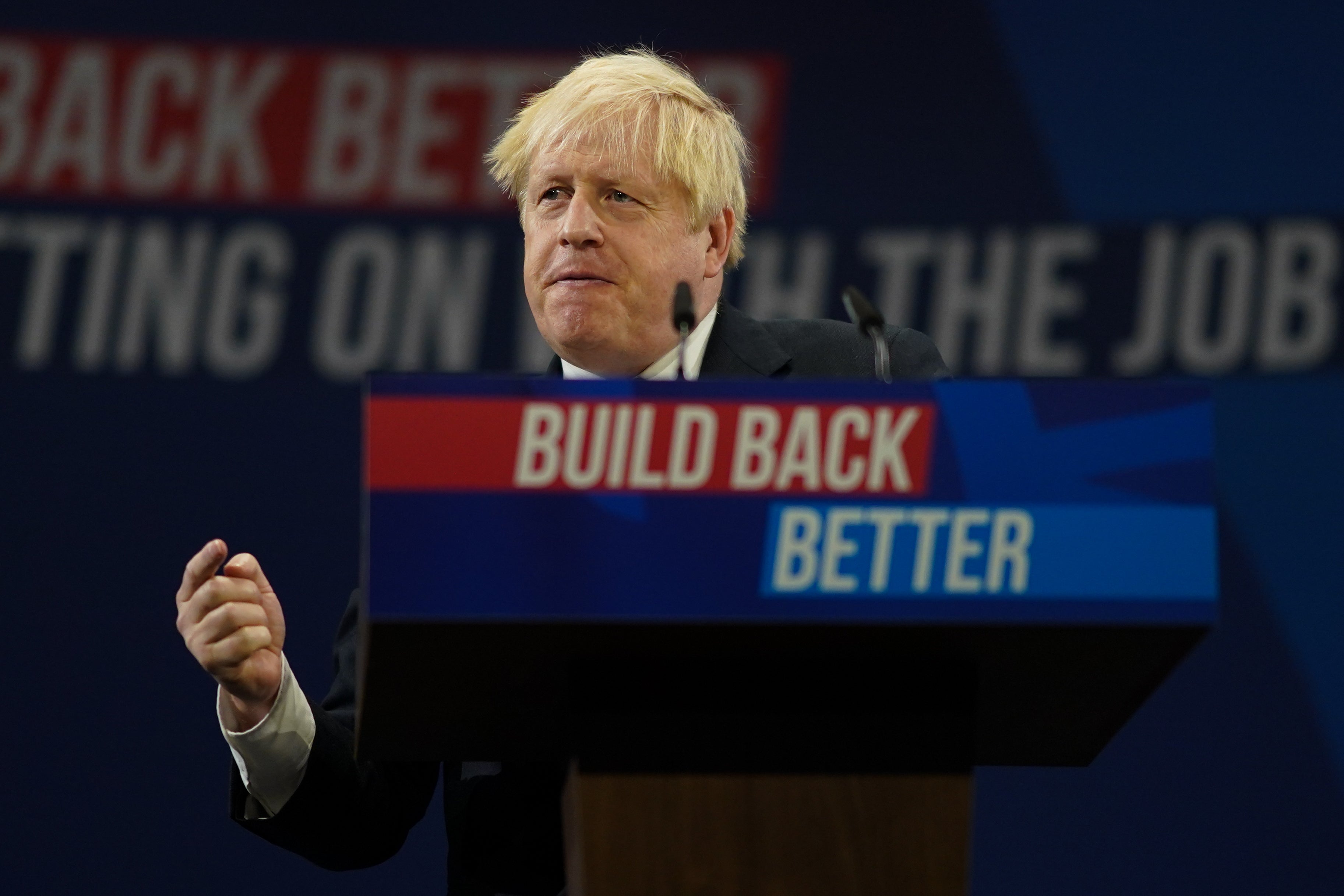Boris Johnson’s new narrative on wages is a trap which Labour must avoid falling into
The government’s policy is all about undermining the rights of migrants: the path to higher wages, they say, runs through ending free movement, writes Michael Chessum

Beware politicians touting uncontroversial slogans. The message being broadcast from Tory Party conference - that Britain needs a pay rise - is just such a slogan. Between 2007 and 2015, British workers suffered a 10.4 per cent decrease in median earnings, a pay cut second only to Greece in the developed world, and only last year did wages get back to their pre-crash levels.
The problem with Boris Johnson’s new narrative on wages - and why it is also a trap for Labour - is that behind the bland statement of fact, lies a deeply reactionary agenda. While the prime minister’s rhetoric this week might have upset some employers, the government’s actual policy is all about undermining the rights of migrants: the path to higher wages, they say, runs through ending free movement and creating a labour shortage. So some obvious facts must be restated.
The attack on our standard of living did not come from abroad: falling wages and underfunded public services have been seen under successive Tory governments. The post-crash austerity administrations led by David Cameron and Theresa May failed spectacularly in economic terms, but they succeeded in driving down public sector pay, squeezing benefits, and pushing millions into precarious employment.
On the effect of migration on wages, academic studies give differing results. On a very basic level, migration increases the supply of labour, though it also increases demand and the overall size of the economy. But this debate misses the point, because even on the most pessimistic reading, migration would account for a fraction of the wage stagnation we have suffered in recent years. And if workplaces were well-unionised or the economy adequately regulated, there could be no negative effect from immigration - whether it be from Burnley, Bologna or Bogota.
In so many ways, we are still living in Margaret Thatcher’s Britain. Smashing the trade union movement and undermining the right to strike created the conditions for a low wage economy, and the right to buy depleted social housing stock. Depending on your perspective, we now live in either the utopia or dystopia of the “property-owning democracy”: to understand how wealth works in the UK, you need to understand that in the past year, the average house earned more than the average person.
Brexit is a project aimed at “finishing what Margaret Thatcher started”, in the words of her chancellor, Nigel Lawson. By moving out of the EU’s regulatory orbit, the Tories can deepen the deregulation of the economy. Ending free movement is about taking away the rights of migrant workers. If their rights are conditional on the approval of employers and governments - as is the case with new visas in the food sector - then workers will be more precarious, more exploitable and less likely to campaign for better pay. But, much more importantly from Boris Johnson’s perspective, Brexit provides a narrative about who is to blame for falling wages, chronic housing shortages and public services that have been underfunded at times to the point of non-existence: economic migrants and the EU, not bosses and politicians.
This narrative is the Vote Leave formula for winning elections, and the Tories’ latest push on “wages versus immigration” is simply the logical extension of it. And so Johnson is determined to press this narrative, even if it means being condemned as “economically illiterate” by the Adam Smith Institute. His aim is to take any rise in wages - which is likely if, as is being widely briefed, the government is about to raise the minimum wage - and credit it to Brexit.
The Tories’ narrative on wages bears a striking resemblance to the arguments used by some supporters of the left-wing case for Brexit (or Lexit) at the time of the 2016 referendum, and some on the left will be tempted to go along with tougher border controls. In defiance of Labour conference and his own leadership election pledges, Keir Starmer - historically a Remainer - has already signalled that he would not reintroduce free movement.
The only real solution to the problem of falling wages is to increase the power of workers, and while the Tories may play around with protectionism, working class organisation is something that only the labour movement can deliver. The politics of rising borders, and the narrative that surrounds it, means absolving the Tories of responsibility for falling living standards, and reinforcing the momentum of the Brexit project. Labour must not walk into this trap.



Join our commenting forum
Join thought-provoking conversations, follow other Independent readers and see their replies
Comments